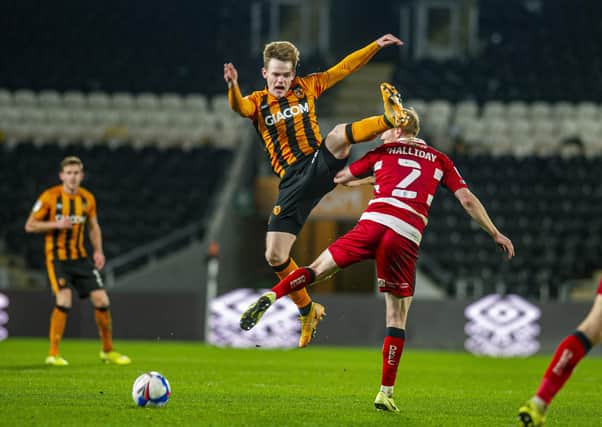Salary cap in Leagues One and Two is axed


The caps were voted through by third and fourth-tier clubs in August last year and were set at £2.5million per club in League One and £1.5million per club in League Two.
However, the Professional Footballers’ Association immediately challenged the caps, saying they were “unlawful and unenforceable”, and an independent panel has now forced the caps to be withdrawn.
Advertisement
Hide AdAdvertisement
Hide AdThe panel ruled that the EFL was in breach of the Professional Football Negotiating and Consultative Committee’s (PFNCC) constitution in introducing the caps.
The PFA said it looked forward to working with the EFL on “reasonable and proportionate cost control measures for the future”.
PFA chief executive Gordon Taylor said: “We were disappointed that the EFL decided to introduce salary cap proposals, which were voted through without the proper consideration or consultation with the PFNCC.
“As a result, in August 2020, the PFA served a notice of arbitration on the EFL stating the introduction of the new rules were in breach of obligations under the constitution of the PFNCC. We are pleased the panel upheld the PFA’s claim.”
Advertisement
Hide AdAdvertisement
Hide AdThe EFL saw the caps as an essential part of ensuring clubs lived within their means, particularly given the pressure placed on revenues by the coronavirus pandemic.
The league’s own statement confirmed that following the decision, the Salary Cost Management Protocol (SCMP) regulations that were in effect during the 2019-20 season had been reinstated.
An EFL statement added: “The EFL will now discuss the matter of financial controls and implications linked to this outcome at a series of meetings with its member clubs later this week.”
The PFNCC contains representatives of the PFA, the EFL, the Premier League and the Football Association.
Advertisement
Hide AdAdvertisement
Hide AdIt must consider matters related to the rules and regulations related to the employment and remuneration of professional footballers.
The PFA’s statement continued: “Like everyone involved in football, the PFA wants to see sustainable clubs at all levels. We also recognise the huge economic pressure that clubs have come under due to the Covid-19 crisis.
“The PFA believes it is now in the best interest of the leagues, the clubs, and the players to work together and agree on rules that promote financial stability.”
Portsmouth chief executive Mark Catlin said the salary cap had been a “blunt instrument” and paid no regard to the differing size of clubs in the third and fourth tiers.
Advertisement
Hide AdAdvertisement
Hide Ad“We have been the biggest advocates of self-sustainability in football clubs but the salary cap in its current form just levelled the playing field, it did nothing in our opinion to address sustainability within clubs,” he told the PA news agency.
“You have smaller clubs where the owners would still need to be putting in £1million-plus to get to the salary cap, but you had some of the larger clubs that could afford a lot more but were not able to put that on to the pitch.
“We always said that was wrong, it went away from the model of self-sustainability which we believe is what we should be working for.
“We have it within our grasp as an organisation to control the spending of clubs, but it shouldn’t be done with a blunt instrument, because not all clubs are the same.
Advertisement
Hide AdAdvertisement
Hide Ad“Clubs are of differing sizes and we should be able to work on that principle and respect that.”
Forest Green chairman Dale Vince said he was surprised and shocked by the news.
“It’s quite a dramatic turn of events, and too late to have any practical effect on this year,” he said.
“I was surprised by the panel’s conclusion that the purpose of the cap was to affect the bargaining power of players, when clearly the purpose of the cap was to bring financial sustainability to Leagues One and Two.
“I imagine the PFA’s objection is not just that it wasn’t consulted, I think the PFA object to the cap. I think if the EFL wants a cap, it’s going to have to leave the PFNCC.”
Comment Guidelines
National World encourages reader discussion on our stories. User feedback, insights and back-and-forth exchanges add a rich layer of context to reporting. Please review our Community Guidelines before commenting.